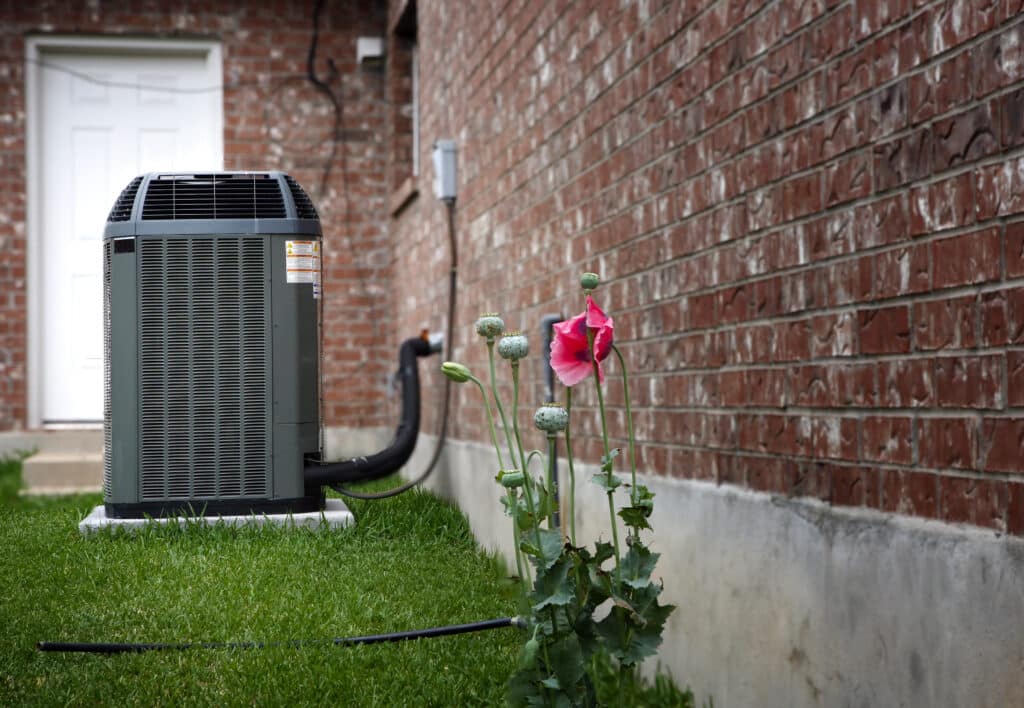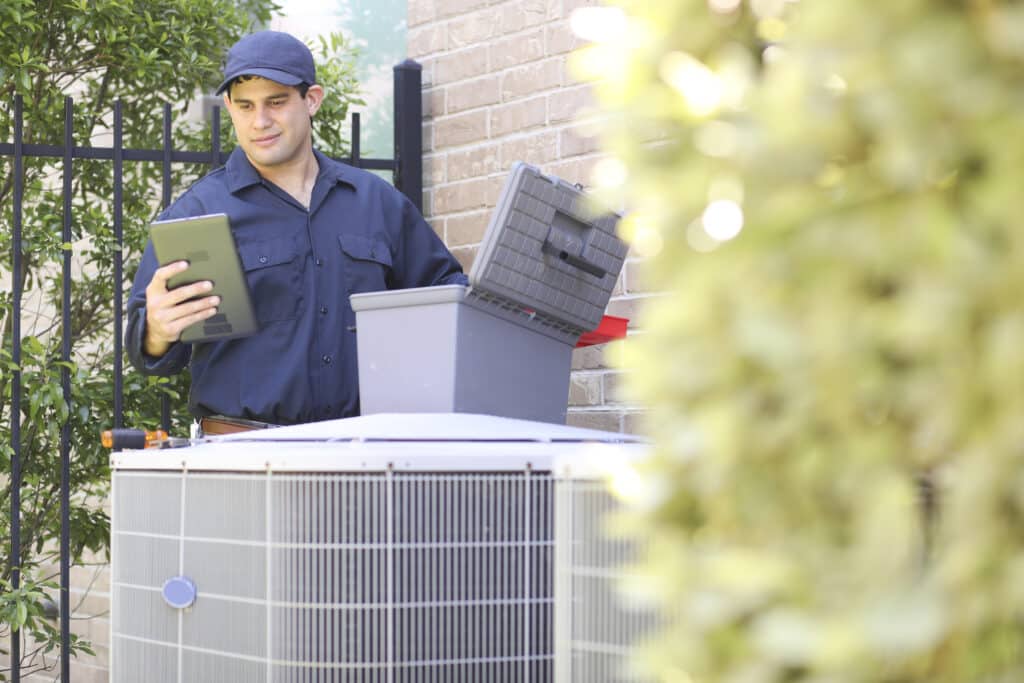Residential HVAC Code Requirements: A Comprehensive Guide

Have you ever wondered how residential HVAC code requirements impact your home’s comfort and safety?
If you’re a homeowner, understanding these regulations is crucial for ensuring your HVAC system operates efficiently, safely, and legally.
In this article, we’ll dive deep into the world of residential HVAC code requirements, exploring everything from installation standards to maintenance protocols. You’ll gain a thorough understanding of how these codes affect your home’s HVAC system, ensuring you’re well-informed to make the best decisions for your comfort and safety.
A Detailed Explanation of Residential HVAC Code Requirements
Residential HVAC code requirements are a set of regulations and standards that dictate how heating, ventilation, and air conditioning (HVAC) systems should be installed, maintained, and inspected in residential buildings.
These codes are designed to ensure that HVAC systems are safe, efficient, and effective, providing comfortable living conditions while minimizing risks associated with improper installation or maintenance.

What are residential HVAC code requirements?
Residential HVAC code requirements are a set of regulations and standards that govern the installation, maintenance, and inspection of heating, ventilation, and air conditioning (HVAC) systems in residential properties. These requirements are crucial for ensuring that HVAC systems are installed and operated in a manner that guarantees safety, efficiency, and effectiveness within homes.
The essence of these residential HVAC code requirements is to provide a framework that ensures HVAC systems contribute positively to the indoor environment of residential buildings, enhancing comfort, air quality, and overall livability.
They cover a broad spectrum of criteria, including HVAC installation standards, which dictate how systems must be installed to ensure they operate safely and efficiently. This includes specifications on materials, design, and execution to ensure that every component functions optimally.
Moreover, building codes for HVAC play a significant role in these residential HVAC code requirements. They ensure that HVAC systems are integrated into homes in a way that complies with local and national safety standards, addressing aspects like ventilation, fire safety, and structural integrity.
Residential heating and cooling regulations also stipulate the minimum performance standards for HVAC systems, ensuring they are capable of maintaining comfortable and healthy indoor temperatures and air quality levels. These standards are vital for energy conservation, reducing the environmental footprint of residential buildings, and ensuring that homeowners can enjoy cost-effective heating and cooling solutions.
HVAC compliance in homes extends to regular inspections and maintenance, ensuring that systems continue to operate in line with these standards over time. These inspections help identify potential issues early, preventing costly repairs and ensuring the system’s longevity.
Additionally, air conditioning system codes and residential HVAC inspection criteria are integral to these requirements, focusing on the specific needs and challenges associated with cooling systems in homes. They address factors like refrigerant handling, system sizing, and air distribution to ensure effective and efficient cooling.
residential HVAC code requirements are designed to create a safe, comfortable, and energy-efficient living environment, reflecting the importance of well-regulated AIR CONDITIONING SYSTEMS in modern homes.
Understanding the Basics of Residential HVAC Code Requirements
Installation Standards
At the heart of residential HVAC code requirements are the installation standards. These standards are crucial because they ensure that HVAC systems are installed in a manner that maximizes efficiency and safety.
Proper installation affects everything from the system’s longevity to its ability to maintain consistent temperatures and reduce energy consumption.
For instance, HVAC installation standards dictate the correct sizing of units, proper ductwork installation, and the appropriate placement of equipment to ensure optimal performance and safety.
Building Codes
Building codes are another essential aspect of residential HVAC code requirements. These codes ensure that HVAC systems are integrated into homes without compromising the structure’s integrity or the safety of its occupants.
Local and national building codes can vary, but they typically address how HVAC systems interact with other building systems, such as electrical and plumbing systems, to ensure a harmonious and safe integration.
Adherence to building codes for HVAC is not just about compliance; it’s about ensuring that the HVAC system contributes positively to the home’s overall safety and functionality.
Efficiency Requirements
Energy efficiency is a significant focus of residential HVAC code requirements.
Efficiency requirements are designed to ensure that HVAC systems use energy as effectively as possible, reducing environmental impact and saving homeowners money on utility bills. These standards often specify the minimum acceptable efficiency ratings for new HVAC installations, encouraging the use of modern, energy-efficient technologies.
By meeting these efficiency requirements, homeowners can enjoy a comfortable home environment while also contributing to broader environmental conservation efforts.
Safety Regulations
Safety is paramount when it comes to HVAC systems, and residential HVAC code requirements place a strong emphasis on safety regulations. These regulations are designed to prevent accidents and health hazards, such as fires or carbon monoxide poisoning.
Proper ventilation is a critical aspect, ensuring that harmful gasses are adequately vented out of the home.
Safety regulations also cover the installation and maintenance of fuel-burning components, electrical connections, and the use of refrigerants, all aimed at safeguarding the home’s occupants and the HVAC technicians who work on these systems.
By understanding these fundamental aspects of residential HVAC code requirements, homeowners can better appreciate the importance of compliance and the role it plays in ensuring a safe, efficient, and comfortable living environment.
The Importance of Compliance with Residential HVAC Code Requirements
Ensuring System Longevity and Efficiency
Compliance with residential HVAC code requirements is crucial for maximizing the longevity and efficiency of your HVAC system.
When systems are installed and maintained according to these standards, they operate more efficiently, consume less energy, and are less likely to suffer from premature wear and tear.
This not only extends the lifespan of the HVAC system but also ensures that it operates at peak efficiency, reducing the need for frequent repairs and lowering energy costs over time.
Avoiding Safety Hazards
One of the most critical aspects of adhering to HVAC compliance in homes is ensuring the safety of the building’s occupants.
HVAC systems that are not up to code can pose significant risks, including fire hazards and the potential for carbon monoxide leaks. These dangers can have severe consequences, making compliance with safety regulations a top priority.
By following residential heating and cooling regulations, homeowners can mitigate these risks and ensure a safe living environment.
Legal and Financial Implications
Non-compliance with residential HVAC code requirements can also have legal and financial repercussions.
Homeowners may face fines or penalties if their HVAC systems do not meet local building codes and standards.
Additionally, non-compliance can complicate the process of selling a home, as potential buyers may require systems to be brought up to code before proceeding with a purchase. Ensuring compliance helps avoid these legal and financial hurdles, making it easier to sell the home and potentially increasing its market value.
Energy Efficiency and Environmental Impact
Meeting residential HVAC code requirements is not only beneficial for reducing energy bills but also for minimizing the environmental impact of heating and cooling systems. Energy-efficient systems consume less power, reducing the demand on power plants and consequently lowering greenhouse gas emissions.
By complying with these efficiency standards, homeowners contribute to a more sustainable future, aligning with broader goals of energy conservation and environmental protection.
Compliance with residential HVAC code requirements is essential for ensuring the safety, efficiency, and legal standing of your HVAC system. It’s a proactive approach that benefits homeowners by enhancing system performance, ensuring safety, avoiding legal issues, and contributing to environmental sustainability.
Regular Inspections and Maintenance of Residential HVAC Systems
Proactive Issue Identification and Resolution
Regular inspections and maintenance are foundational to ensuring that residential HVAC systems adhere to HVAC compliance in homes. These routine checks serve as a proactive measure, allowing homeowners and technicians to identify and address potential issues before they escalate into significant problems.
During these inspections, technicians examine various components of the HVAC system, including ductwork, filters, electrical connections, and refrigerant levels.
By catching issues early, homeowners can avoid more extensive and costly repairs down the line, ensuring their system operates efficiently and effectively.
Maintaining Code Compliance
Regular maintenance is also vital for maintaining compliance with residential HVAC code requirements.
Codes and standards evolve, and what was compliant a few years ago may no longer meet the current requirements.
Regular inspections ensure that HVAC systems are up-to-date with the latest residential heating and cooling regulations. This ongoing compliance is crucial not only for the system’s performance and safety but also for legal adherence, especially in scenarios where local regulations are stringent and frequently updated.
Enhancing System Efficiency and Longevity
The efficiency and longevity of an HVAC system are directly tied to regular maintenance and inspections. When a system is well-maintained, it operates more efficiently, which translates to lower energy consumption and reduced utility bills.
Moreover, regular maintenance extends the lifespan of the HVAC system by preventing wear and tear on its components.
For instance, cleaning or replacing filters can improve airflow and prevent the system from overworking, which in turn reduces the risk of breakdowns and extends the system’s operational life.
Safety Assurance
Safety is a paramount concern in HVAC maintenance. Regular inspections help ensure that the system is not posing any safety risks, such as electrical issues or gas leaks.
Technicians can identify and rectify potential hazards, ensuring that the system is safe for household occupants. This aspect of maintenance is particularly crucial for systems that rely on gas or oil, where the risk of carbon monoxide leaks or fires can be mitigated through diligent inspections and maintenance.
regular inspections and maintenance are indispensable for the optimal operation of residential HVAC systems. These practices ensure that systems remain efficient, safe, and compliant with the latest residential HVAC code requirements, ultimately providing homeowners with peace of mind and a comfortable living environment.

Routine Maintenance Tasks for Residential HVAC Systems
Maintaining your HVAC system is crucial for its efficiency, longevity, and compliance with residential HVAC code requirements.
Here are some key maintenance tasks that homeowners can perform to keep their systems in top condition.
Filter Replacement
One of the simplest yet most effective maintenance tasks is the regular replacement or cleaning of HVAC filters.
Dirty filters can significantly hinder airflow, forcing the system to work harder, which can lead to increased energy consumption and reduced system lifespan. Regular filter maintenance ensures that your system maintains optimal air quality, preventing dust and allergens from circulating throughout your home.
It’s recommended to check filters monthly and replace or clean them as needed, typically every 30 to 90 days, depending on usage and filter type.
Clearing Vents and Ducts
Ensuring that all vents and ducts are clear of obstructions is vital for maintaining proper airflow and system efficiency. Blocked vents can cause uneven heating or cooling, strain the HVAC system, and lead to increased energy costs.
Homeowners should regularly inspect vents and registers to ensure they are not blocked by furniture, curtains, or other items.
Additionally, periodic duct cleaning can help maintain air quality and system efficiency, though this is typically a task for professionals.
Checking Thermostats
Thermostats play a critical role in the operation of your HVAC system, helping to regulate the temperature and ensure comfortable living conditions.
Regularly check your thermostat to ensure it’s functioning correctly and accurately reflects the temperature settings. Consider upgrading to a programmable or smart thermostat, which can offer more precise control, energy savings, and the ability to adjust settings remotely, aligning with HVAC efficiency requirements.
Outdoor Unit Maintenance
The outdoor unit of your HVAC system, typically part of your air conditioning or heat pump system, requires regular maintenance to ensure optimal performance.
Keep the area around the unit clear of leaves, debris, and vegetation to ensure adequate airflow and prevent overheating. During routine maintenance, inspect the unit for signs of wear, damage, or leaks, and ensure that the unit is level and secure.
This not only aids in efficiency but also helps in adhering to costly repairs. Timely intervention ensures that your system continues to operate efficiently, safely, and in compliance with residential HVAC code requirements.
Mitigating Risks and Costs
Ignoring or delaying the resolution of identified issues can have a domino effect, leading to more significant problems down the line.
For instance, a minor leak or blockage, if left unattended, can result in extensive damage to your system, requiring more extensive and expensive repairs. Moreover, such negligence could lead to a complete system breakdown, significantly disrupting residential HVAC system design standards.
By performing these routine maintenance tasks, homeowners can significantly contribute to the efficiency, safety, and compliance of their HVAC systems with residential HVAC code requirements.
Regular attention to these areas can prevent minor issues from escalating into major problems, ensuring that the HVAC system remains a reliable source of comfort in the home.
Addressing Issues Promptly in Residential HVAC Systems
Immediate Action on Inspection Findings
When an inspection of your residential HVAC system uncovers any issues, it’s imperative to take immediate action.
Promptly addressing these concerns is not just about rectifying a current problem; it’s about preempting future complications that could escalate into more severe and your home’s comfort and necessitating an urgent and costly replacement.
Ensuring Compliance and Efficiency
Addressing issues promptly is also crucial for maintaining compliance with residential HVAC code requirements.
Many of these codes are in place to ensure not only the efficiency and reliability of your system but also the safety of your home environment. Delaying repairs can result in non-compliance, which might lead to legal penalties, increased insurance costs, or challenges when selling your property.
Professional Assistance and Expertise
When issues are identified, it’s advisable to seek professional assistance. Residential HVAC code requirements professionals have the expertise to diagnose the root cause of the problem accurately and provide the most effective solutions.
They ensure that repairs are conducted in line with the latest HVAC installation standards and residential heating and cooling regulations, guaranteeing that your system’s performance and compliance are restored.
Proactive Maintenance and Monitoring
Beyond addressing immediate issues, it’s beneficial to adopt a proactive approach to your HVAC system’s maintenance.
Regular monitoring and maintenance can prevent many problems from arising in the first place, ensuring your system remains in optimal condition and compliant with HVAC efficiency requirements and safety regulations.
promptly addressing issues identified during HVAC inspections is crucial for the longevity, efficiency, and compliance of your system.
It prevents minor issues from escalating into major problems, ensures adherence to residential HVAC code requirements, and maintains the comfort and safety of your home environment. Engaging with residential HVAC code requirements professionals for timely repairs and adopting a proactive maintenance strategy are key steps in safeguarding the performance and compliance of your residential HVAC system.
Staying Informed on Code Changes for Residential HVAC Systems
Navigating the landscape of residential HVAC code requirements can be challenging, especially as codes and standards evolve over time.
Staying informed about these changes is crucial for homeowners to ensure their systems remain compliant, efficient, and safe.
Understanding the Importance of Code Updates
HVAC codes and standards are dynamic, and often updated to reflect new safety protocols, technological advancements, and environmental considerations. These updates can impact various aspects of your HVAC system, from installation practices to maintenance protocols and efficiency standards.
Being aware of these changes helps homeowners make informed decisions about their HVAC systems, ensuring they meet current standards and operate at peak efficiency.
Subscribing to Local Building Authority Updates
One effective way to stay informed about changes in HVAC codes and standards is by subscribing to updates from local building authorities.
Many municipalities offer newsletters or alert services that provide updates on building codes, including those related to HVAC systems. These resources can be invaluable for homeowners, offering insights into local requirements that might affect their HVAC system’s compliance and operation.
Engaging with HVAC Professionals
Consulting with HVAC professionals during routine inspections or maintenance visits is another way to stay abreast of code changes. These experts are typically well-versed in the latest standards and can guide how any new requirements might affect your system.
They can offer advice on necessary upgrades or adjustments to ensure compliance and optimal performance, aligning with the latest HVAC installation standards and residential heating and cooling regulations.
Leveraging Online Resources and Forums
The internet offers a wealth of information on HVAC codes and standards. Homeowners can access a variety of online resources, including forums, industry websites, and government portals, to learn about recent changes in HVAC codes.
These platforms often provide detailed explanations of code revisions and practical advice on ensuring compliance, making them a valuable resource for homeowners seeking to stay informed.
Participating in Community Workshops and Seminars
Attending workshops or seminars focused on residential HVAC systems can provide homeowners with up-to-date information on code requirements and best practices.
These events, often hosted by local building authorities or residential HVAC code requirements professionals, offer a platform to learn about the latest standards, ask questions, and gain insights into maintaining and upgrading HVAC systems in compliance with current codes.
By staying informed about changes in residential HVAC code requirements, homeowners can ensure their systems are safe, efficient, and compliant, avoiding potential penalties and maximizing the comfort and air quality of their homes.
Energy Efficiency and Upgrades in Residential HVAC Systems
The Value of Energy Efficiency
Energy efficiency in residential HVAC systems is not just a buzzword; it’s a crucial aspect that impacts both the environment and your wallet.
An energy-efficient HVAC system consumes less power, which translates to lower energy bills and a reduced carbon footprint. With the increasing focus on sustainability and energy conservation, adhering to HVAC efficiency requirements is more important than ever for homeowners.
Assessing Your System’s Efficiency
If your HVAC system is older, it may not be as energy-efficient as the newer models available today.
Older systems often operate at lower efficiency levels, leading to higher energy consumption and increased costs.
By assessing the efficiency of your current system, you can determine whether an upgrade could provide significant benefits. Consider factors like the system’s age, its Seasonal Energy Efficiency Ratio (SEER), and any recurring issues or inefficiencies that could be impacting its performance.
Benefits of Upgrading to an Energy-Efficient Model
Upgrading to a more energy-efficient HVAC model can offer numerous benefits.
Modern HVAC systems are designed with the latest technology to provide superior efficiency and performance. They are often equipped with features like variable-speed motors, advanced thermostats, and better insulation, all of which contribute to reduced energy consumption and improved indoor comfort.
Additionally, upgrading can align your system with the latest residential HVAC efficiency requirements, ensuring compliance and potentially increasing your home’s value.
Understanding HVAC Efficiency Requirements
Staying informed about HVAC efficiency requirements is crucial when considering an upgrade. These requirements, often expressed in terms like SEER for cooling systems and Annual Fuel Utilization Efficiency (AFUE) for heating systems, set the minimum performance standards for energy efficiency.
By choosing a system that meets or exceeds these standards, you can ensure that your upgrade is a wise investment, providing long-term savings and environmental benefits.
Incentives and Rebates for Energy-Efficient Upgrades
Many utility companies and governments offer incentives or rebates for homeowners who upgrade to energy-efficient HVAC systems. These programs are designed to encourage the adoption of energy-saving technologies, making upgrades more affordable for homeowners.
Before upgrading, research available incentives in your area, as they can significantly reduce the initial investment cost and enhance the overall value of your upgrade.
Consulting with HVAC Professionals
When considering an upgrade, it’s beneficial to consult with HVAC professionals. They can provide valuable insights into the most energy-efficient models on the market, tailored to your home’s specific needs and local HVAC compliance in homes.
Residential HVAC Code requirements professionals can also ensure that your new system is installed correctly, maximizing its efficiency and lifespan.
By prioritizing energy efficiency and considering upgrades when necessary, homeowners can enjoy the dual benefits of reduced energy bills and compliance with modern HVAC efficiency requirements, all while contributing to a more sustainable future.
Documentation and Records for Residential HVAC Systems
Importance of Keeping Detailed Records
Maintaining a comprehensive record of all inspections, maintenance, and repairs for your residential HVAC system is more than just good housekeeping; it’s a critical practice that can have significant implications for the system’s longevity, efficiency, and compliance.
These records serve as a historical account of your system’s condition and the care it has received over time, providing invaluable data for various purposes.
Warranty and Service History
One of the primary benefits of keeping detailed records is for warranty purposes.
Many HVAC components come with warranties that can be voided if the system is not properly maintained. By documenting each service or repair, you provide proof that the system has been cared for according to the manufacturer’s specifications, preserving your warranty coverage.
Additionally, if you encounter a recurring issue, your service history can help technicians diagnose and resolve the problem more efficiently.
Facilitating Future Troubleshooting
When an HVAC technician visits your home for a service call, having a detailed record of past inspections and repairs can significantly aid in troubleshooting.
Technicians can review the system’s history to identify patterns or recurring issues, which can inform their approach to diagnosing and fixing current problems. This can lead to more accurate and faster resolutions, saving time and potentially reducing the cost of repairs.
Proving Compliance with HVAC Code Requirements
If you ever decide to sell your home, demonstrating that your HVAC system complies with residential HVAC code requirements can be a significant selling point.
Potential buyers often seek assurance that major home systems are not only in good working order but also meet current standards and regulations. Your maintenance and inspection records can serve as proof of compliance, potentially increasing your home’s marketability and value.
Organizing and Storing Your Records
To maximize the benefits of your HVAC documentation, it’s essential to organize and store your records effectively.
Consider keeping a dedicated file or digital folder for all HVAC-related documents, including service receipts, inspection reports, and any correspondence with HVAC professionals.
Ensure that each record is dated and includes a detailed description of the service performed, any parts replaced, and the technician’s observations or recommendations.
Regular Updates and Reviews
Regularly updating your HVAC records and reviewing them periodically can help you stay on top of your system’s maintenance needs and anticipate potential issues before they become serious problems.
This proactive approach can contribute to the overall health and efficiency of your HVAC system, ensuring it continues to provide comfortable living conditions while meeting residential HVAC code requirements.
Diligent documentation and record-keeping for your HVAC system are crucial for warranty protection, efficient troubleshooting, proving code compliance, and enhancing the value of your home.
By maintaining detailed and organized records, you ensure that your HVAC system’s history is well-documented, supporting its ongoing performance and compliance.
Top 5 Best Practices for Navigating Residential HVAC Code Requirements
-
Regular Professional Inspections
Ensuring your HVAC system undergoes regular professional inspections is a cornerstone of maintaining compliance with residential HVAC code requirements. These inspections serve as a preventive measure, identifying and rectifying potential issues before they escalate.
A certified technician can assess whether your system aligns with the latest HVAC compliance in homes, checking for any deviations or necessary updates.
This proactive approach not only ensures compliance but also enhances the system’s efficiency and longevity, providing peace of mind that your HVAC is operating safely and effectively.
-
Staying Informed About Code Updates
The HVAC industry is dynamic, with codes and standards evolving to incorporate new technologies, environmental considerations, and safety protocols.
Staying informed about these changes is crucial for homeowners. By subscribing to updates from local building authorities or HVAC professional organizations, you can receive timely information on code modifications, ensuring your system remains compliant.
This ongoing education can help you make informed decisions about your HVAC system, whether it’s about routine maintenance or considering significant upgrades.
-
Investing in Energy-Efficient Systems
Investing in energy-efficient HVAC systems is not only a nod to environmental stewardship but also a smart financial decision.
Modern systems with high SEER (Seasonal Energy Efficiency Ratio) ratings and ENERGY STAR certification meet stringent energy efficiency standards, which can significantly reduce your utility bills.
Moreover, these systems often come with advanced features that improve indoor air quality and overall comfort, aligning with HVAC efficiency requirements and contributing to a healthier living environment.
-
Proper Installation and Sizing
The correct installation and sizing of your HVAC unit are pivotal for compliance with residential HVAC code requirements.
An improperly sized unit can lead to inefficiencies, increased wear and tear, and even premature failure, not to mention the potential for non-compliance with local HVAC installation standards.
Engaging with experienced professionals ensures that your system is not only sized correctly but also installed according to the latest industry standards, optimizing its performance and compliance.
-
Understanding Local Variations in Codes
HVAC codes can vary widely depending on your location, reflecting the local climate, environmental policies, and specific regional challenges.
Being aware of these local variations is essential for ensuring your system complies with the specific requirements of your area. Local HVAC professionals are invaluable resources in this context, offering insights into regional codes and how they impact your HVAC system.
Their expertise can guide you through the nuances of local regulations, ensuring your system meets all local HVAC compliance in homes.
By embracing these strategies, homeowners can navigate the complexities of residential HVAC code requirements effectively, ensuring their systems are safe, efficient, and compliant. This not only safeguards your investment but also contributes to a comfortable and sustainable living environment.

One Hour Air Conditioning & Heating of Phoenix, AZ: Your Go-to HVAC Code Requirements Experts
Expertise in Residential HVAC Code Compliance
One Hour Air Conditioning & Heating of Phoenix, AZ, stands as a beacon of expertise and reliability in ensuring your HVAC system aligns with residential HVAC code requirements.
Their deep understanding of local and national codes, combined with their commitment to excellence, makes them an ideal partner for homeowners seeking compliance and efficiency in their HVAC systems.
Comprehensive Services Across Multiple Locations
Whether you reside in Phoenix, Scottsdale, Paradise Valley, Chandler, Mesa, or Tempe, One Hour Air Conditioning & Heating extends its services across these areas, ensuring that your HVAC system is up to code.
Their team of certified professionals is equipped to provide comprehensive inspections, maintenance, and upgrades, ensuring that your system meets the stringent requirements set forth by local and national standards.
Tailored Solutions for Energy Efficiency and Safety
Understanding that each home has unique needs, One Hour Air Conditioning & Heating offers tailored solutions that not only ensure compliance with HVAC code requirements but also enhance the system’s energy efficiency and safety.
Their approach involves a thorough assessment of your system, identifying areas for improvement or upgrade, and implementing solutions that align with the latest HVAC efficiency requirements and safety standards.
Stay Informed and Supported
One Hour Air Conditioning & Heating believes in empowering homeowners with knowledge. They provide valuable insights into the importance of HVAC code compliance and how it impacts your home’s comfort, safety, and energy consumption.
By choosing their services, you gain a partner who keeps you informed and supported throughout the process of maintaining or upgrading your HVAC system.
Contact Information and Call to Action
For residents of Phoenix, Scottsdale, Paradise Valley, Chandler, Mesa, and Tempe, taking the step toward ensuring your HVAC system meets all code requirements is made easy with One Hour Air Conditioning & Heating.
You can reach out to them at 480-508-8881 to schedule an inspection or consultation. Their team is ready to provide the expertise and services you need to ensure your HVAC system is not only compliant but also optimized for performance and efficiency.
Visit their Google My Business page to see reviews and ratings, further affirming their commitment to quality service and customer satisfaction.
Take the proactive step today to ensure your HVAC system complies with residential HVAC code requirements, with One Hour Air Conditioning & Heating of Phoenix, AZ as your trusted partner.
Conclusion
Navigating the complexities of residential HVAC code requirements is crucial for homeowners to ensure their systems are safe, efficient, and compliant.
Regular professional inspections, staying updated on code changes, investing in energy-efficient systems, ensuring proper installation and sizing, and understanding local code variations are key strategies to achieve this.
One Hour Air Conditioning & Heating of Phoenix, AZ, emerges as a trusted partner in this journey, offering expertise and services across Phoenix, Scottsdale, Paradise Valley, Chandler, Mesa, and Tempe to help homeowners meet and exceed these standards.
Their commitment to providing tailored solutions that align with HVAC installation standards, residential heating and cooling regulations, and HVAC efficiency requirements ensures that your system not only adheres to the necessary codes but also operates at its peak efficiency.
By choosing a reputable service provider like One Hour Air Conditioning & Heating, you’re investing in the longevity, safety, and efficiency of your HVAC system, thereby enhancing the comfort and value of your home. Remember, compliance with HVAC code requirements is not just a legal obligation but a commitment to the well-being and comfort of your household.

FAQS
-
Why are these code requirements important?
These requirements are crucial for several reasons: they ensure the safety of the home’s occupants, improve the efficiency and longevity of the HVAC system, and help homeowners avoid legal penalties and potential issues when selling their property.
-
How do these requirements affect HVAC installation?
During installation, HVAC systems must adhere to specific standards that cover everything from the size and type of the system to its placement and connection to the home’s infrastructure. These standards ensure the system is safe and efficient.
-
What about maintenance and inspections?
Regular maintenance and inspections are mandated to ensure that HVAC systems continue to operate safely and efficiently. These checks can identify potential issues before they become serious problems, extending the life of the system.
-
Can homeowners install or modify their HVAC systems?
Homeowners can undertake some aspects of HVAC maintenance, but installations and significant modifications typically require professional assistance to ensure compliance with HVAC code requirements.
-
How do local and national codes differ?
While national codes provide a baseline, local codes can vary significantly based on regional climate, local environmental concerns, and specific municipal regulations. Homeowners should be aware of both sets of codes.
Do you know if your home’s HVAC system meets the latest residential HVAC code requirements? Share your thoughts or questions below!





